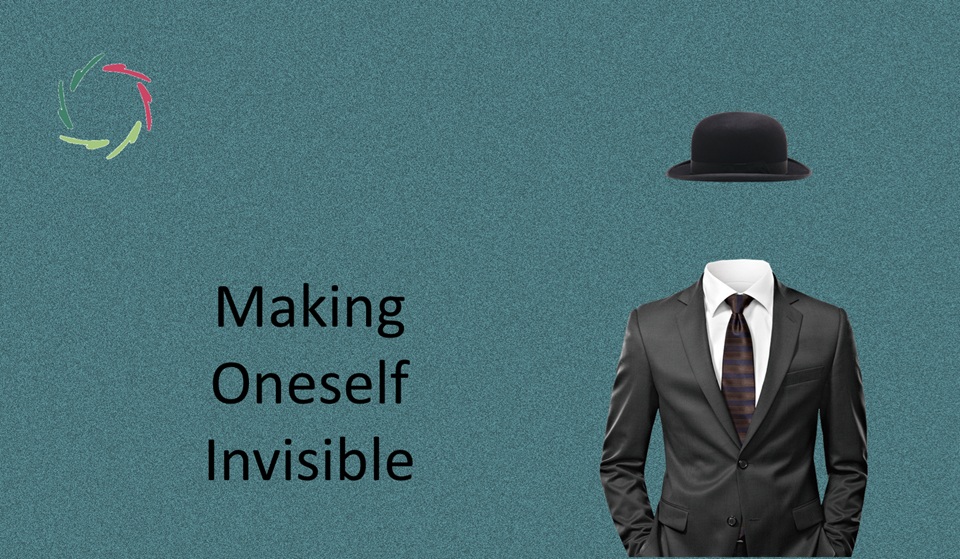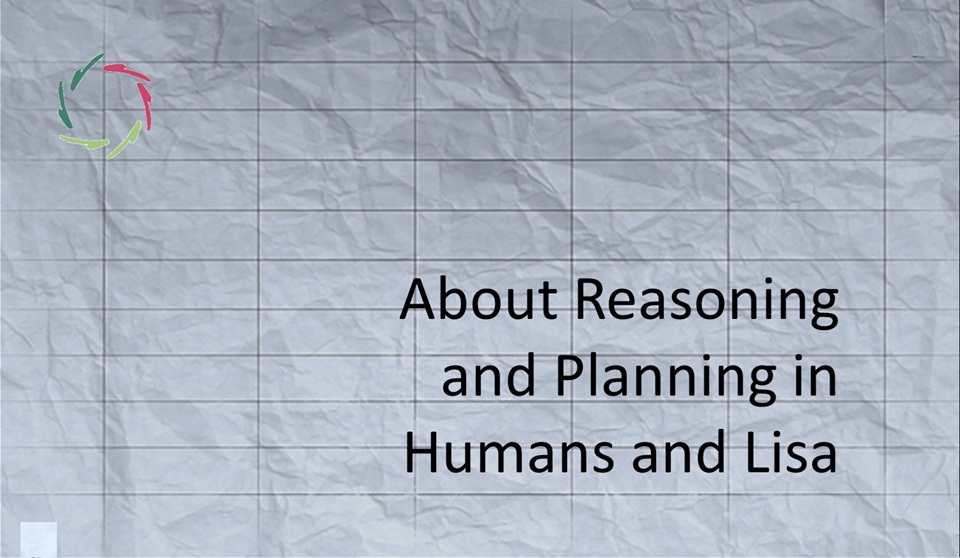Making Oneself Invisible

People often think that making themselves invisible will protect them ― from conflict, from self-doubt, and from uncomfortable truths. The same happens at the level of society. When something threatens money, power, or status, it’s easier to just not think about it than to face the reality of deep change. But invisibility is an illusion.
What is hidden does not disappear. Instead, it shapes actions from the shadows, creating unintended consequences, sometimes catastrophic ones.
This tendency is not just personal.
It defines entire historical moments. The Cold War was a prime example of how two superpowers projected their internal fears outward rather than confronting them directly. Similarly, economic inequality persists because societies deny the deeper structures that shape it, while climate inaction continues because people dissociate from their connection to nature.
Invisibility does not solve anything. It only delays the inevitable awakening. And when awakening is forced rather than chosen, the cost is high.
Hiding from oneself
On a personal level, making oneself invisible often means avoiding the confrontation with one’s own deeper patterns. People suppress anxieties, fears, and contradictions because facing them would require change. Yet, paradoxically, these suppressed elements do not stay buried — they find ways to surface, often as stress, aggression, or compulsive behaviors.
There is a mirror effect in this: those who refuse to see themselves fully assume that others won’t see them either. This is why some people seem completely unaware of their own flaws while being highly critical of others. The deeper self, however, does not forget. What is repressed does not disappear. It simply emerges elsewhere, usually in ways beyond conscious control.
This is closely related to the basic denial, which prevents people from seeing what is right in front of them. When something challenges a deeply held belief, the easiest response is not to think about it. But suppression is not resolution. The real alternative is awakening — turning toward the unseen rather than away from it.
The Cold War: a clash of invisible fears
The Cold War was not just about military power or ideology. At its core, it was a war of projections and denials. Both the United States and the Soviet Union refused to look at their own contradictions and instead externalized their fears onto each other.
The U.S. portrayed itself as the guardian of democracy, yet within its own borders, racial segregation, McCarthyist repression, and economic inequalities contradicted that ideal. Rather than confronting these issues, they were projected outward, making communism the ultimate threat.
The Soviet Union, meanwhile, preached workers’ equality, yet maintained an authoritarian regime where real power remained concentrated in the hands of a privileged elite. Instead of recognizing these failures, the USSR blamed capitalism as the sole source of oppression.
Both sides saw themselves as the embodiment of ‘good’ and the other as absolute evil. This denial of internal depth led to decades of paranoia, proxy wars, and a nuclear arms race. In the end, the Soviet Union collapsed because it could no longer sustain its inner contradictions. The U.S., despite its Cold War victory, still grapples with many unresolved tensions.
If both sides had been willing to awaken to their own realities, the war could have ended differently — perhaps even avoided entirely. But making oneself invisible means delaying confrontation until there is no choice left.
Economic inequality: the myth of meritocracy as denial of depth
One of the most persistent illusions of modern society is the idea that success is purely a matter of individual effort. This denial of systemic depth allows wealthier individuals to believe they fully deserve their position while leading poorer individuals to internalize blame for their struggles.
In reality, deep subconscious structures shape economic opportunity. Those born into poverty often develop learned helplessness, fear of risk, and internalized self-doubt — patterns formed by experience, not personal failure. At the same time, those born into privilege often deny the extent to which the system benefits them.
The real problem is that economic solutions rarely address these deeper realities. Governments try to fix inequality through redistribution without confronting the subconceptual barriers that keep many people trapped in disadvantage. Without addressing the mind’s role in economic life, the same cycles will continue indefinitely.
The myth of meritocracy is convenient because it makes deeper truths invisible. But invisibility does not change reality. Only awakening does.
Climate change: the ultimate denial of depth
Climate change is not just an environmental or political issue. It is a deep psychological issue. The true obstacle is not technology or policy but the way people dissociate from their relationship with nature.
Denial takes many forms:
- Seeing the environment as something separate from daily life.
- Believing that slow-moving threats do not require immediate action.
- Relying on technological optimism instead of changing fundamental habits.
By treating climate change as a distant or abstract issue, individuals and societies avoid confronting the deep transformation required — a shift in values, habits, and priorities. As long as people remain psychologically self-invisible regarding nature, real solutions will remain out of reach, as explained in Fostering Climate Motivation.
This is why awareness campaigns often fail. Facts alone do not change behavior — awakening does. People must reconnect with the depth of their own existence before they can truly engage with the depth of the world around them.
Conceptual Europe vs. awakened Europe
Europe presents itself as a union, yet beneath the surface, it is full of denied contradictions. Economic disparities, political divisions, and cultural tensions persist, even as policies attempt to create unity.
Europe often focuses on technical solutions rather than deeper psychological shifts. For example, migration policies attempt to regulate numbers but fail to address the deeper anxieties about identity and belonging that fuel resistance. Economic policies seek to stabilize growth but ignore the subconscious fears that make some regions resistant to change.
True unity cannot be built on conceptual agreements alone. Europe must awaken to its own depth, embracing diversity not just as a bureaucratic necessity but as a transformative reality. A compassionate Europe, as envisioned in Europe, United in Compassionate Diversity, is not just a matter of policy. It is a matter of mental openness.
Awakening before it’s too late
Making oneself invisible is never a permanent solution. What is hidden always returns — whether in personal breakdowns, societal conflicts, or environmental collapse. The choice is never whether to awaken but when and how:
- Will it happen consciously, through deep insight and transformation?
- Or will it happen painfully, through crisis and destruction?
The real paradox is that visibility – the very thing people fear – is what brings true safety. Seeing oneself fully – as an individual or a society – means gaining the power to transform before collapse becomes inevitable.
The world does not need more invisibility. It needs more people and societies willing to be fully seen — by themselves first, and then by others.


